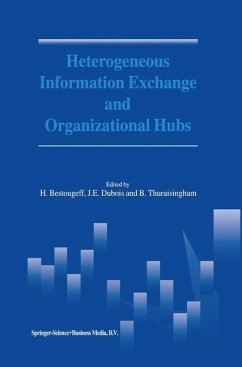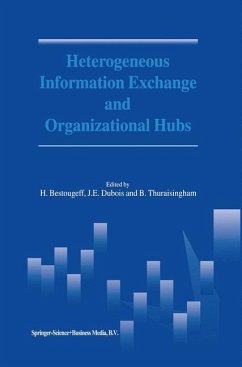
Understanding Complexity

PAYBACK Punkte
58 °P sammeln!
Peter A. Coming Palo Alto, CA November, 2000 This volwne represents a distillation of the plenary sessions at a unique millenniwn year event -a World Congress of the Systems Sciences in conjunction with the 44th annual meeting of the International Society for the Systems Sciences (ISSS). The overall theme of the conference was "Understanding Complexity in the New Millenniwn. " Held at Ryerson Polytechnic University in Toronto, Canada, from July 16-22,2000, the conference included some 350 participants from over 30 countries, many of whom were representatives of the 21 organizations and groups ...
Peter A. Coming Palo Alto, CA November, 2000 This volwne represents a distillation of the plenary sessions at a unique millenniwn year event -a World Congress of the Systems Sciences in conjunction with the 44th annual meeting of the International Society for the Systems Sciences (ISSS). The overall theme of the conference was "Understanding Complexity in the New Millenniwn. " Held at Ryerson Polytechnic University in Toronto, Canada, from July 16-22,2000, the conference included some 350 participants from over 30 countries, many of whom were representatives of the 21 organizations and groups that co-hosted this landmark event. Each of these co-host organizations/groups also presented a segment of the program, including a plenary speech. In addition, the conference featured a nwnber of distinguished "keynote" speeches related to the three daily World Congress themes: (1) The Evolution of Complex Systems, (2) The Dynamics of Complex Systems, and (3) Human Systems in the 21st Century. There were also seven special plenary-level symposia on a range of timely topics, including: "The Art and Science of Forecasting in the Age of Global Wanning"; "Capitalism in the New Millenniwn: The Challenge of Sustainability"; "The Future of the Systems Sciences"; "Global Issues in the New Millenniwn"; "Resources and the Environment in the New Millenniwn"; "The Lessons of Y2K"; and "Can There be a Reconciliation Between Science and Religion?" Included in this special commemorative volume is a cross-section of these presentations.














